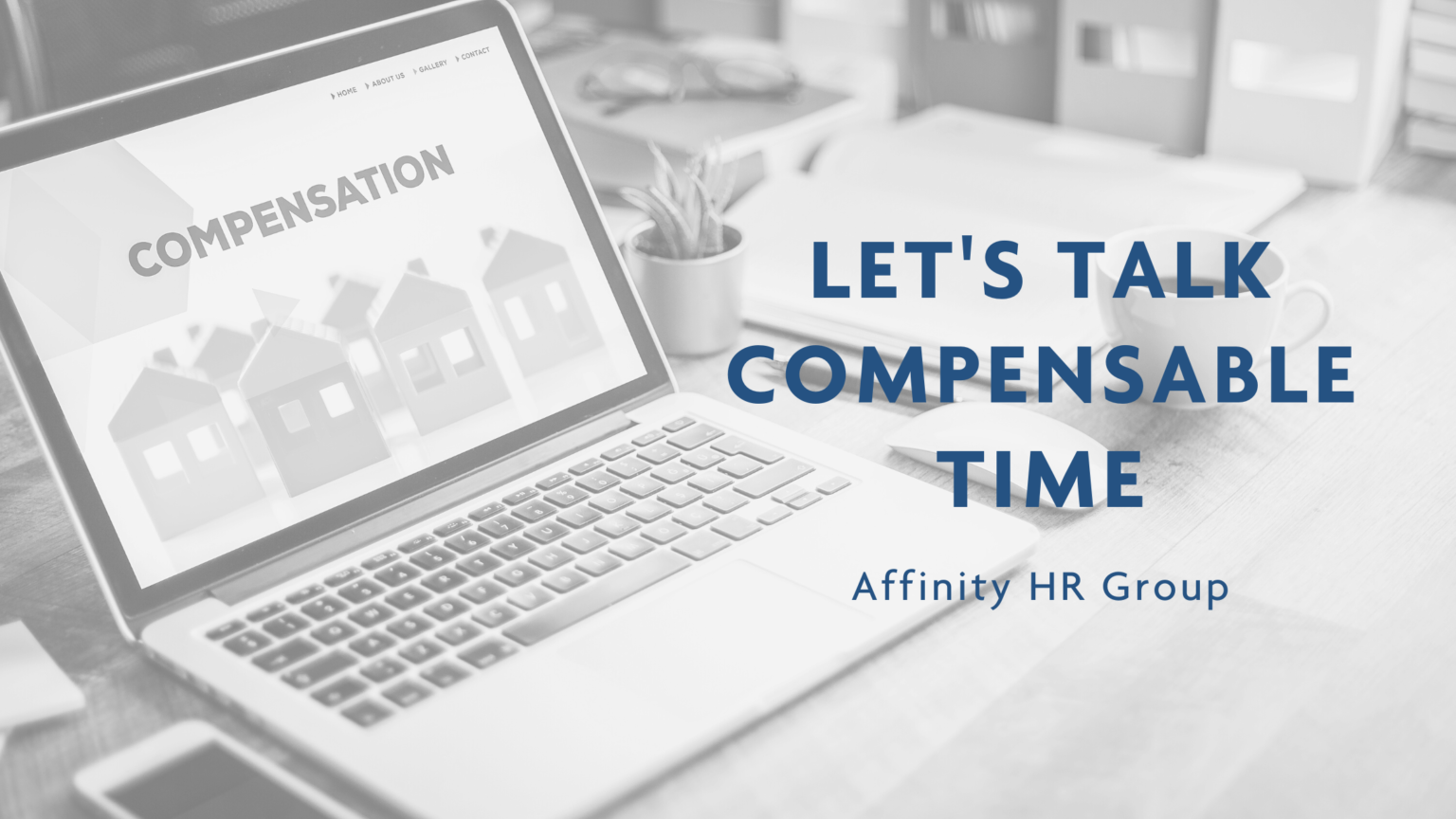A recent story reported that Delta Airlines will begin paying flight attendants half-time for boarding duties, a change from the industry-standard of only paying once the doors close. Delta is implementing this change to stave off a push to unionize their flight attendants. However, it raised a critical question for many people – are there times I do not need to pay employees when they work?
This, like many aspects of wage-and-hour law, has a complicated answer as there are many factors to consider. First, let’s define some key terms:
Fair Labor Standards Act (FLSA) is the federal law that defines “wage-and-hour” law and applies to most companies. While certain enterprises are not subject to some of the FLSA requirements, even they must still follow the minimum wage, overtime, record-keeping, and child labor requirements in total or in part.
Non-exempt employees are covered by FLSA and must be paid a minimum wage of at least $7.25 per hour for all hours worked and overtime of time-and-a-half their regular hourly rate for all hours worked over 40 hours in a workweek (a set 7-day / 168-hour period). Employers must track and retain records of their extra time worked using any timekeeping method such as timeclock, timecards, computer systems, etc.
Exempt employees meet specific criteria as defined by the FLSA releasing employers from these minimum wage, overtime, and time-tracking requirements. These employees usually work for a salary (“wage guarantee”) regardless of how many hours they work in a workweek.
Some states have laws dictating a higher minimum wage, more generous overtime payments, and/or different exemption standards so employers must follow the one that most benefits the employee.
Exemptions are based on the actual job duties each employee performs, not on their title or position. FLSA establishes many exemptions, the most common of which are Executive, Administrative, Professional, Computer, and Outside Sales Employees. However, there are numerous other ones defined under FLSA such as exemptions for Highly-Compensated employees, first responders, healthcare workers, domestic workers, and farm workers. For example, Delta Airlines is exempt from certain FLSA requirements under the Railway Labor Act (RLA) so they are not obligated to pay this boarding time.
Some FLSA exemptions cover specific requirements, such as the Tip Credit which allows employers to reduce the minimum wage paid (currently down to $2.13 per hour, although some states have different requirements) for employees who qualify as Tipped Employees, but retains the overtime and record-keeping requirements. Commissioned retail employees who earn more than half of their wages from commissions and whose regular pay rate is at least time-and-a-half minimum wage may be exempt from minimum wage and overtime requirements, but time-tracking is still required.
Compensable time is all time for which a non-exempt employee must be paid. This includes all time an employer allows a non-exempt employee “to suffer or permit to work,” meaning any work done on behalf of or to benefit the company regardless if it is requested, scheduled, or approved.
Most compensable time is easy to determine – the time a non-exempt employee is actively performing their job duties. However, there are several areas of compensable time which may not be obvious but must still be paid. Some of these categories include (for ease, in this section “employee” will refer to non-exempt employees only):
“Portal-to-Portal Act”: A part of FLSA which dictates that employees must be paid for activities that are “integral and indispensable” to their main job duties, are not de minimis (less than 10 minutes), and do not fall under certain criteria. Travel time and donning and doffing are covered in this Act.
Travel time: An employee must be paid for some, but not all, of their time spent traveling as part of their job duties. While they do not need to be paid for any time traveling to and from their home and work, they must be paid for all time traveling between different work sites during the day. For example, an employee who reports to the main office and then goes to work at another worksite during the day would not need to be paid to drive from home to the main office but would need to be paid for the time traveling from the main office to the worksite(s) during the day and back to their office. When their shift is over, the time spent driving back home from the office would not be paid.
If an employee is assigned to another location for a workday, they would need to be paid for all travel time to and from their home to this worksite, except the employer may reduce it by the amount of time an employee usually travels to-and-from home and work.
If an employee has overnight travel, they need to be paid for any travel time that they are actively traveling (i.e., when they are driving for work purposes) or when any passive travel time (i.e., when a passenger on a plane or train) corresponds with their regular work hours, even if on days the employee does not usually work. But, if this travel time is outside of their regular hours, the time would not need to be paid unless they are otherwise working during this time.
If an employee is out of town, they need to be paid for all time they are working but not for time when they are free from all work responsibilities (i.e., meals and sleep time).
“Donning and doffing” time: This includes time spent when an employee must put on (“don”) and remove (“doff”) clothing, safety equipment, and work-related gear. The more specialized and critical to an employee’s job duties, the more likely the time spent dressing in and removing this clothing, etc. would be paid time. For example, if an employee is required to wear a face mask due to COVID-19 protocols, the time spent putting this on would probably not be compensable. But if an employee must wear special PPE due to their work with caustic and toxic materials, this time is compensable.
Breaks: An employee does not need to be paid for a break which lasts longer than 20 minutes and during which the employee is completely relieved of their job duties. An employee must be paid for any break which is 20 minutes or less, even if required by law, and if they must work during any part of their break lasting longer than 20 minutes.
Common trouble areas: Several areas of wage-and-hour laws may cause confusion for an employer. FLSA requires that the employer take the action which most benefits the employee so thorough consideration should be given to situations which may not be as clear, such as:
Classifying a supervisor as “exempt”: While an employee may appreciate the title and salary that comes with being a supervisor, the title alone does not qualify them for the exemption. They must meet the duties test, often for the Executive or Administrative exemptions, and the salary threshold (currently $684 per week). If a supervisor does not have the independent discretion to hire and fire the employees, for example, they may not meet the exemption requirements.
Making decisions vs. Following a script: The Administrative Employee exemption includes a “duties test” with the requirement that the employee has the ability to “exercise discretion and independent judgment with respect to matters of significance” in areas related to “the management or general business operations of the employer or the employer’s customers.” If the employee can make such decisions without input from management, they may fall under the exemption. But, if an employee must follow a set decision-making procedure before taking any action, they may not be exempt. A similar requirement applies to the Computer Employee exemption.
One final word: FLSA and state wage-and-hour laws contain numerous requirements and exceptions so being completely in compliance is sometimes difficult. However, the penalties for failing to meet these requirements can be costly. A complaint by one employee that they were not properly paid can lead to an investigation into two or three years of past pay practices for the whole company, reclassification of a group of employees from “exempt” to “non-exempt,” and the employer having to pay unpaid compensable time and overtime as well as penalties and damages. And, since no employee can waive their rights under FLSA, a signed acknowledgement or request from an employee will not provide protection from penalties.
Let Affinity HR Group help you navigate wage-and-hour laws by researching applicable federal and state laws, such as exemptions or compensable time.






